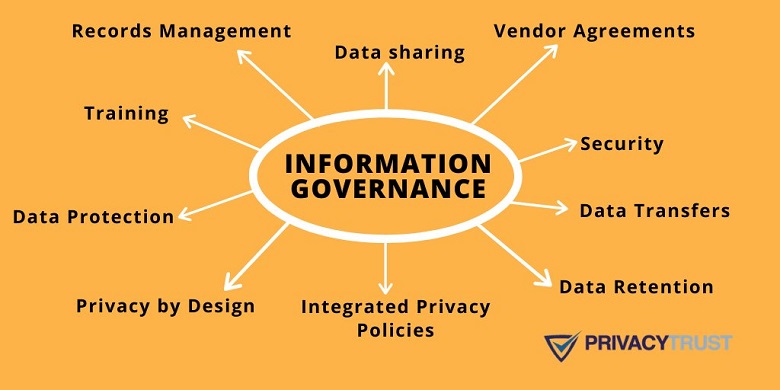In today’s digital age, businesses rely heavily on data and information for their day-to-day operations. However, with data’s increasing volume and complexity, organizations face significant risks related to data breaches, regulatory compliance, and legal disputes. Businesses must implement effective information governance strategies to safeguard their valuable assets and ensure legal and ethical practices. But what is information governance? This article will discuss its importance and how it can help mitigate potential risks.
1. Understanding Data Governance:
Data governance refers to the framework and processes that enable organizations to manage their information assets throughout their lifecycle. It encompasses various elements, including data privacy, security, records management, compliance, and quality. A robust data governance program ensures data is accessible, accurate, and secure while complying with relevant laws and regulations.
2. Mitigating Data Breach Risks:
Now that you can answer the question “what is information governance?”, this section will highlight mitigating data breach risks. Data breaches pose a significant threat to corporations, as they can lead to financial catastrophe, reputational damage, and legal repercussions.
Data governance plays a crucial role in mitigating the following risks:
Data Classification and Protection: Implementing a robust data classification system helps identify sensitive information and apply appropriate security measures. Encryption, access controls, and data loss prevention technologies can protect data from unauthorized access or leakage.
Incident Response and Breach Management: A well-defined incident response plan enables businesses to detect and respond to data breaches quickly. By having clear procedures in place, organizations can minimize the impact of a breach and swiftly address any vulnerabilities.
3. Ensuring Regulatory Compliance:
Compliance with ordinances such as the General Data Protection Regulation, California Consumer Privacy Act (CCPA), and other industry-specific requirements is essential for businesses to avoid legal consequences. Data governance assists in meeting compliance obligations:
Data Retention and Records Management: Organizations must establish data retention and removal policies to comply with legal and regulatory requirements. Data governance ensures proper records management, allowing businesses to retain necessary data and securely dispose of outdated information.
Privacy by Design: Embedding privacy considerations into the design of systems and processes help organizations proactively address privacy requirements. Data governance promotes privacy by design principles, reducing the risk of non-compliance and associated penalties.
4. Managing E-Discovery and Litigation Risks:
Legal disputes and e-discovery requests can be time-consuming and costly for businesses. Effective data governance practices streamline the e-discovery process and reduce litigation risks:
Data Preservation and Legal Holds: Businesses must preserve relevant data when litigation is reasonably anticipated. Data governance provides mechanisms for identifying, preserving, and retrieving data in response to legal requirements, ensuring businesses are prepared for potential litigation.
Defensible Disposition: Properly managing data throughout its lifecycle can significantly reduce the volume of information subject to e-discovery. By implementing defensible disposition practices, businesses can dispose of irrelevant or outdated data, making the e-discovery process more efficient and cost-effective.
Data Privacy and Redaction: In the e-discovery process, sensitive or confidential information may need to be redacted to protect privacy and comply with legal requirements. Data governance helps businesses identify and redact sensitive data, minimizing the risk of inadvertent disclosure and ensuring compliance with privacy regulations.
Conclusion:
Data governance is an indispensable aspect of protecting businesses from the risks associated with data breaches, regulatory non-compliance, and litigation. By implementing effective data governance strategies, organizations can mitigate these risks and ensure their data’s confidentiality, integrity, and availability. Data classification, incident response planning, compliance with regulations, and defensible disposition are essential elements of a comprehensive data governance framework. As businesses navigate the digital landscape, investing in robust data governance is a proactive step towards safeguarding their valuable assets and maintaining stakeholder trust.








